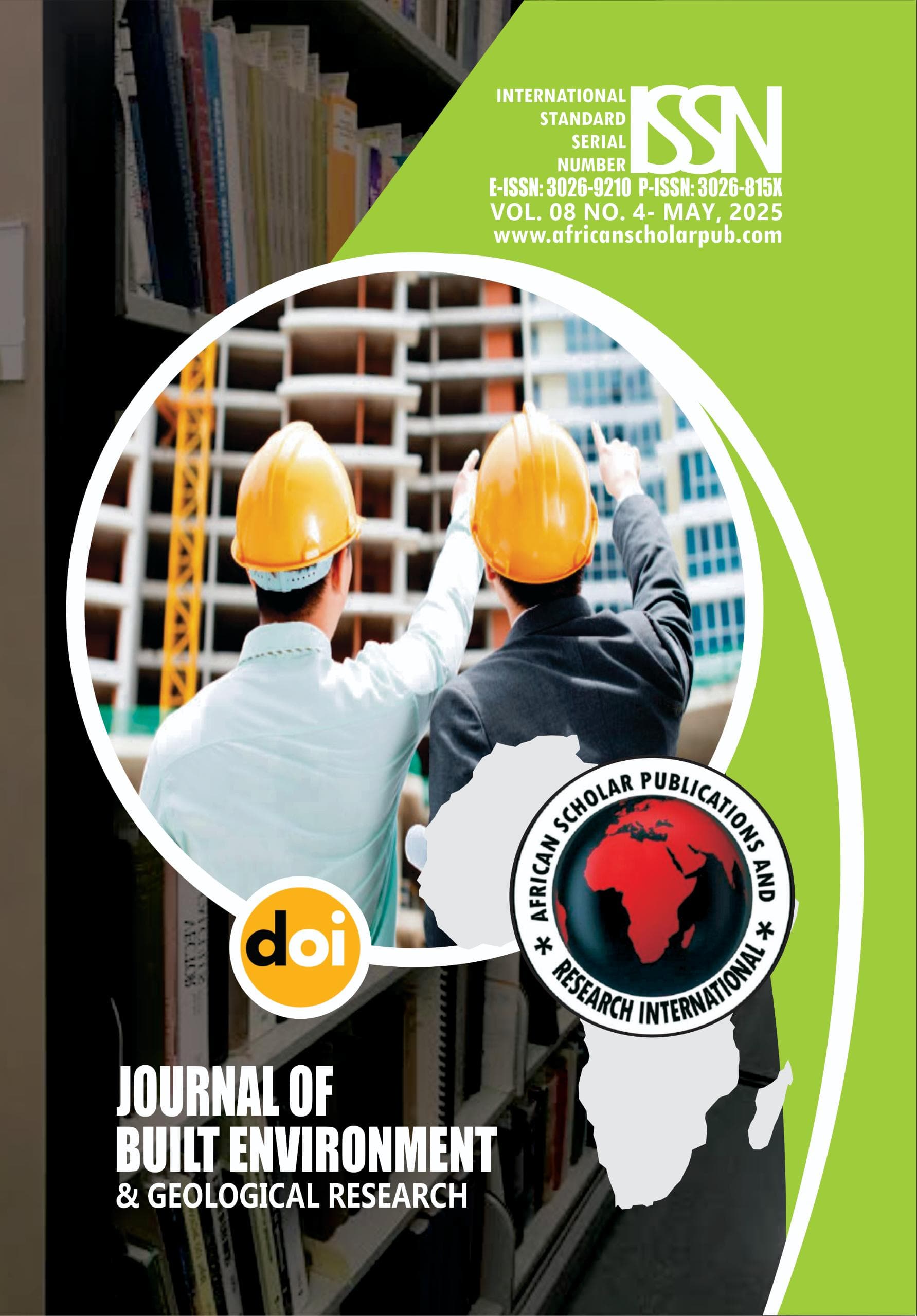Impact Assessment of the 2012 Flood in Delta State, Nigeria
Abstract
This study assesses the environmental and socio-economic impacts of the 2012 flood in Delta State, Nigeria, using a mixed-method approach that combined structured household surveys, geospatial (GIS) data analysis, and thematic interviews. Data were collected from 1,000 respondents through stratified random sampling, with analysis conducted using SPSS for statistical evaluation, ArcGIS for spatial mapping, and NVivo for qualitative coding. The primary causes of flooding identified by respondents included dam water release (32.5% strongly agreed, 30.6% agreed), blocked waterways (27.5% strongly agreed, 30.6% agreed), and heavy rainfall (68.1% strongly agreed, 17.5% agreed). Reported environmental impacts included land loss (66.3%), river siltation (59.4%), and river pollution due to sedimentation (72.6%). The most severe environmental damage was the destruction of houses, bridges, and roads (79.9%), followed by farmland loss, environmental degradation, and river pollution. Biodiversity-related effects—such as those impacting mammals, birds, and vegetation—were the least reported (58.2%). Socio-economically, the flood caused significant hardship, with the highest impacts recorded for increased prices of farm produce (77.5%), hunger and poverty (75.0%), infrastructure damage and drowning (70.6%), settlement isolation (63.7%), and population displacement (63.1%). Despite these significant impacts, statistical analysis found no meaningful correlation between the occurrence of flooding and broader patterns of environmental or socio-economic development in the region. Based on the findings, the study recommends routine clearing of drainage channels, flood hazard mapping, the construction of diversion canals and water-harvesting dams, and river channel dredging to enhance floodwater management capacity.
Keywords:
2012 Flood, Environmental Impact, Dam Release, Siltation, Flood Mitigation, Disaster Vulnerability, Community Resilience, Climate AdaptationDownloads
Downloads
ACCESSES
Published
Issue
Section
License
Copyright (c) 2025 Onome Ochuko Joseph, Christopher Onosemuode (Author)

This work is licensed under a Creative Commons Attribution 4.0 International License.


















